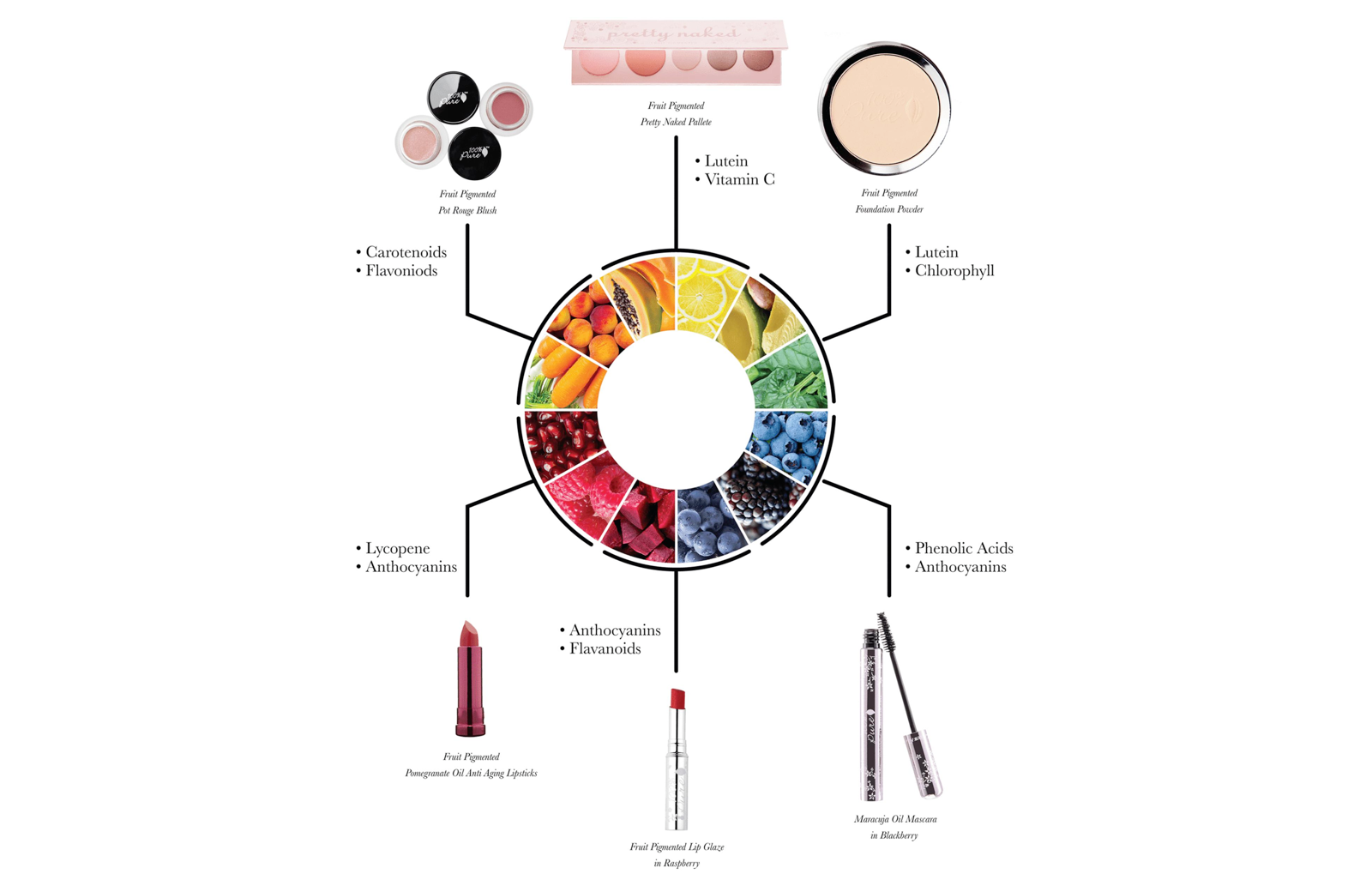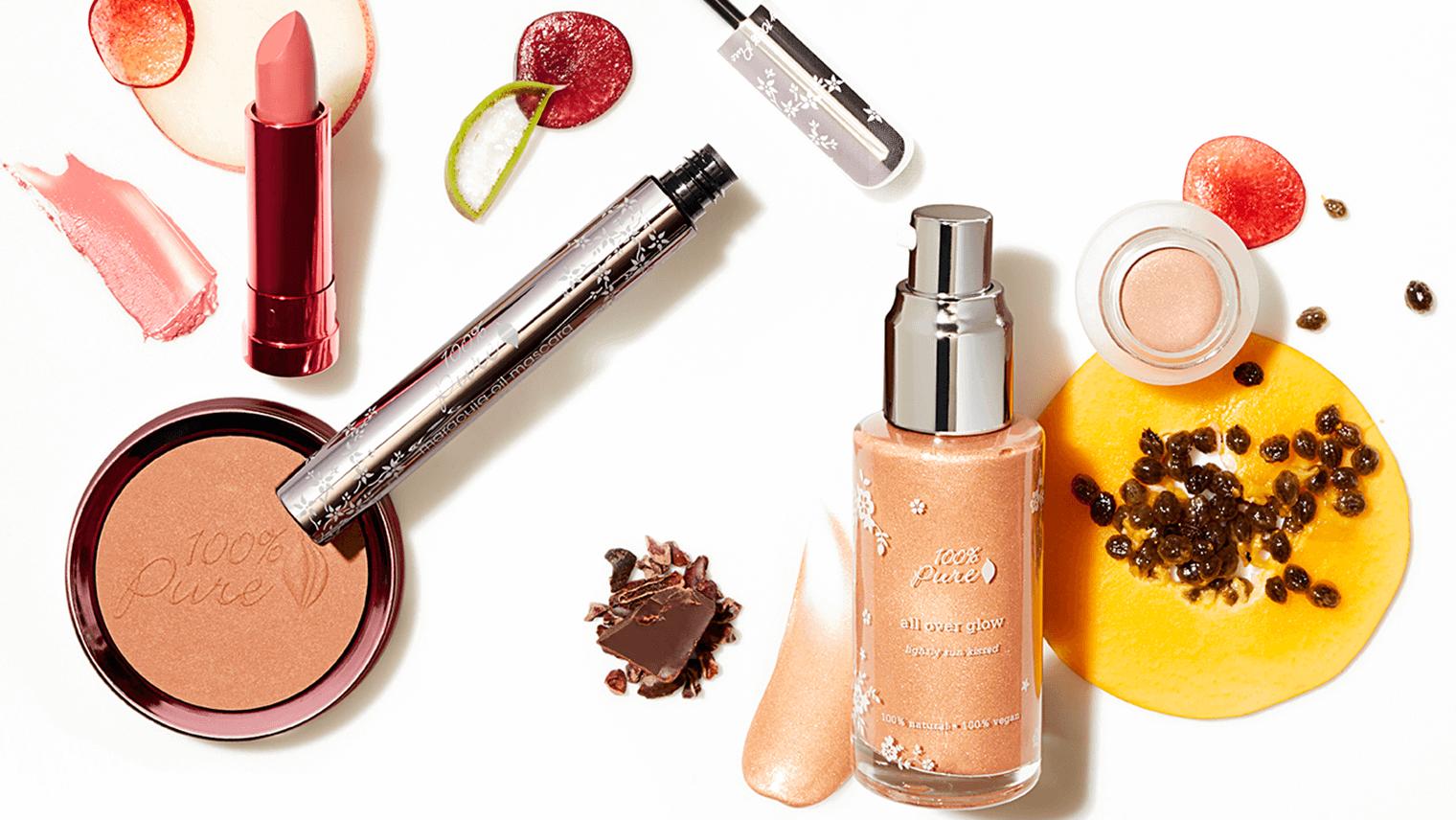It was an alarming laboratory accident …
But one you may be extremely grateful for if you wear makeup or love someone who does.
Susie Wang was formulating an eye cream for major cosmetics companies when she spilled a key ingredient on her laboratory table and noticed that it immediately began bubbling up. The chemical, which cosmetics vendors say can cause tumors in lab animals, was so strong it warped the table and permanently altered the chemical properties of the table’s surface.
“If this is what this chemical does to a table, what’s it going to do to someone’s skin?” Wang recalls wondering.
The chemical in question, according to vendors, is used widely throughout the skincare industry to make products look better, smell better, and last longer on store shelves. It was a realization that alarmed Wang and caused her to re-examine her role in the industry.
“There’s gotta be a better way,” Wang remembers thinking.
Organic Beauty, Just Don’t Talk About It
王虽然没有成千上万的痛单位lars necessary to contract with outside laboratories to manufacture cosmetics, she had something more important- know how.
“We knew how to formulate cosmetics ourselves,” says Ric Kostick, a former classmate of Wang’s. Kostick, Wang, and her brother James, partnered to launch a small line of organic cosmetics out of a farmhouse they shared in Napa, California.
Wang, who wanted to create beauty products with natural ingredients, named the company100% Pure. The three co-founders, who had contacts in the cosmetics industry, quickly got distribution and shelf space in big box retailers for their small line of cosmetics.

That turned out to be a big problem though …
In return for that precious shelf space, 100% Pure learned it would not be allowed to do the one thing necessary to succeed: talk about the natural ingredients in its cosmetics.
The Blackberry Stain
It doesn’t get much more picturesque.
But picking blackberries in the Napa Valley would ultimately yield something much more than just a great pie or jam.
“It was another of those aha moments,” Kostick says, shaking his head.
He and Wang were picking blackberries when Wang noticed the fruit staining her fingers. Instead of worrying about how to remove the stain as many do, Wang’s mind turned to cosmetics and how blackberries might become a bedrock for 100% Pure.
“We extracted the blackberry pigment which is also an antioxidant with anti-aging properties,” Kostick says. “It became a key ingredient for face, eye, and lip makeup.”

Ultimately, the company also began using peaches and cantaloupes to match other skin tones and launched a line of fruit dyed makeup to complement its other skincare products it largely stopped selling in big box stores and began selling direct to the consumer through abeauty ecommerce site.
Our big selling point is what’s not in our products. The big box retailers would not allow us to tell our story or say anything that might cast the larger cosmetics brands in a negative light and hurt sales of those products.
This was before the trend toward organic had accelerated…

这就是为什么100%的纯with the large retailers who were distributing its products and began forming relationships with customers without the middleman. Not only did the company believe it had found a better way to formulate cosmetics, but it also believed the direct B2C route would allow it the freedom necessary to articulate its value proposition.
“We want people to switch away from dirty cosmetics to a pure cosmetic,” Kostick says. “It’s like health food for the skin and it’s something we’re passionate about.”
That’s evident when you examine the company’s growing footprint:
- Twelve retail locations
- Five international ecommerce stores
- Strong and growing stronger wholesale business
Demand for the company’s cornerstone products — powder and liquid foundation — steadily increased as the consumer’s appetite began to shift toward beauty products without artificial colors, artificial fragrances, or synthetic chemical preservatives.
“We went from that farmhouse to selling millions of dollars of all natural beauty products all over the world in eleven years,” Kostick says proudly.
The company quickly outgrew its digital infrastructure …
What followed though was an unfortunate turn that would cost it hundreds of thousands of dollars.
To return to growth, 100% Pure would need the flexibility to create custom tooling that would allow it to do business around the globe with just a click of a button.
Waiting On Quan
Waiting was all Kostick could do for a time.
100% Pure had outgrown its original Volusion ecommerce platform and transitioned to NetSuite but immediately experienced a significant slowdown in site speed. “We were losing a few hundred thousand dollars a month,” Kostick says.
Those were painful months.
But once Quan Nguyen joined the team as Vice President of Technology, 100% Pure replatformed withShopify Plus, an enterprise ecommerce platform for high volume merchants, and began growing again- 40% year over year.
Shopify Plus is super fast,” Kostick says. “It’s our customer facing portal in five countries and allows us to custom code promotions which have been extremely effective.

But being fast and offering attractive promotions wouldn’t be enough…
100% Pure had become a sprawling operation with its dozen retail locations and ecommerce stores in five countries. To better manage its increasingly complex operations, Nguyen used theShopify APIto create what he now calls the Purity Toolbox, a collection of custom connections that allow the company to easily sync:
- Inventory
- Product Information
- Digital Resources
“I just hit the sync button and it’s done,” Nguyen says. “We save so much time being able to sync everything across multiple stores.”
Now Nguyen simply logs into one place and can update each of 100% Pure’s digital and physical properties with ease:
Inventory
When a purchase is made online, a custom connector creates a sales record that works with 100% Pure’sinventory managementsystem, powered by NetSuite, to automatically update inventory levels and fulfill the order.
“This custom tooling also works with our retail locations,” Nguyen says. “We use Shopify’s POS system to integrate our brick and mortar retail locations with our ecommerce stores.”
Product Information
The company’s Purity Toolbox also syncs product information — names, descriptions, and weight — across its international ecommerce stores and retail locations.
“It would be impossible to do this manually because we have 560 products,” Nguyen says. “The custom tooling allows us to click the sync button and update product information across all our stores.”
Digital Resources
100% Pure is also able to instantly and easily sync its digital resources- images and metadata- across its stores. For instance, if the company conducts a new product photo shoot the customized tooling allows it to immediately update the new images.
“It’s a digital repository for all of our digital marketing assets,” Nguyen says. “We can offer all of our partners high resolution images as soon as we decide to update them.”
It’s a competitive advantage thanks to Nguyen’s expertise and Shopify’s flexibility. But it’s not what’s going to power 100% Pure’s future.
Improving On Nearly Perfect
“We built our custom sync tool two and a half years ago,” Nguyen says. “But we’re already looking at re-architecting the tool.”
明天的版本的纯度工具箱将need to sync inventory across multiple warehouses in the United States, Canada, and Europe as the company plans to launch several sister brands, focus on China, and grow much larger.
“In five years we believe our ecommerce business will be eight times the size it is today,” Kostick says.
The company also plans to expand its physical footprint and offer its organic beauty products in approximately two hundred retail stores.

“We’re not giving up on brick and mortar,” Kostick says. “Retail is a great customer acquisition tool for us and complements the omnichannel experience we offer.”
Despite the big plans, don’t expect 100% Pure to expand wildly regarding the categories in which it does business. Instead, look for the 100% Pure team to double down on the color cosmetics and skincare spaces with a narrow focus on innovation and differentiating its products with unrivaled transparency.
“There’s a lot of greenwashing in this space we need to overcome,” Kostick says, regarding the dubious all natural claims of some competing products. “Consumers are demanding proof that their beauty products are all natural and we want to want to provide them that proof and be the leaders when it comes to transparency.”
What started with a spill … is undoubtedly making a splash.
Read More
- How Whimsy Rose Uses the Shopify Plus API to Co-Create Personalized Fashion With Customers On Demand
- How Two of the World’s Top Tattoo Artists Stuck a Needle in the Industry’s Secret Dark Side & Increased Abandoned Cart Recoveries 200%
- How International Military Antiques Broke Every Holiday Record After Migrating
- How L’Occitane Used Shopify Plus to Launch a Facebook Sales Channel in Just 42 Days
- Revenues Spike After Showcase Integrates Their Proprietary Technology With Shopify Plus
- How an Indian Retail Conglomerate Sells Across Global Online Marketplaces
- [Case Study] How Everything Went Right on Refurb.io's Unexpected $100,000 Sales Day
- TULA, With Traffic Up 198% and Transactions Up 407%, Gives Thanks
- Oreo Fearlessly Disrupts Itself to Grow via D2C Ecommerce: A ‘Colorfilled’ Holiday
- How World Wildlife Fund Canada Uses Shopify Plus to Protect the Polar Bears






